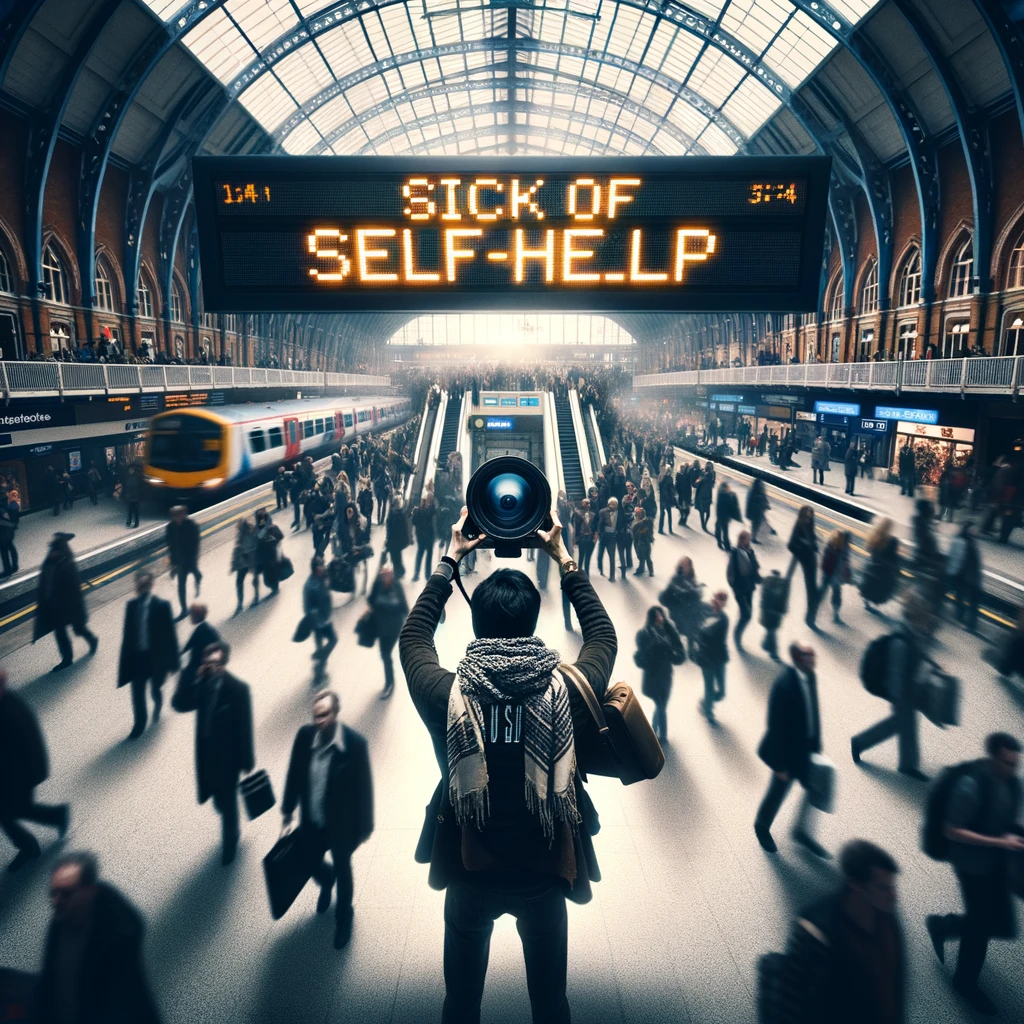Ten years ago, while walking through a crowded train station in central London, I stopped and with a wide-angle lens, I shot an impromptu 3-minute and 48-second rant about how I was Sick of Self-Help.
Having just reviewed the video brought back fond memories of how wild and free I was then, capturing my thoughts before I’d even collected them, and sharing them with the world.
At this moment of seeing, there is an opportunity for me to fall into the trap of thinking and believing this kind of freedom was better and that something has been lost for reasons that attest to my insufficiency.
It is easy to think this way. Not only because of how in the world of self-help we are constantly bombarded with the idea that we are broken and need fixing, which I wrote about in my last article, but also for the reason that I was ranting about in this video.
That is, it is easy to become concerned with my insufficiency when I am focused on myself.
While it may be unintentional, the second context the personal development industry inculcates is a hyper-focus on the self.
Indeed, there is a minority of spiritual teachings that orient around serving others or a connection with something greater than oneself. Still, those whose teachings are not corrupted by egoic leadership or undermined by the promise of personal gain are few and far between.
In 2002 I watched a four-hour Adam Curtis documentary called The Century of the Self which, to this day, has greatly informed my worldview.
In it, Curtis shows how Sigmund Freud’s theories on the unconscious led to the development of public relations by his nephew Edward Bernays; the use of desire over need; and self-actualization as a means of achieving economic growth and the political control of populations.
As I’ve said many times, the problem with most marketing is that it works. By this, I mean that we can effectively move people into action by focusing them on themselves and their pain and fear, but the high cost of this is the self-interested, fear-driven culture we inadvertently create.
To be fair, I do think that for most this is an unintentional and inadvertent cost. I don’t see bad actors in the world of self-help. I see good-natured people wanting to help people but also getting caught up in the over-arching narrative of the primacy of the individual.
The cost of this kind of success is spiritual starvation, or in plain language, a lack of deep fulfilment, a feeling that you’re never ‘there’ yet, and an abiding sense that you’re alone.
The end of self-help is not just the liberation from the idea that you are broken and need fixing or healing, but also from the unbalanced focus on yourself.
Loving us all, JPM

